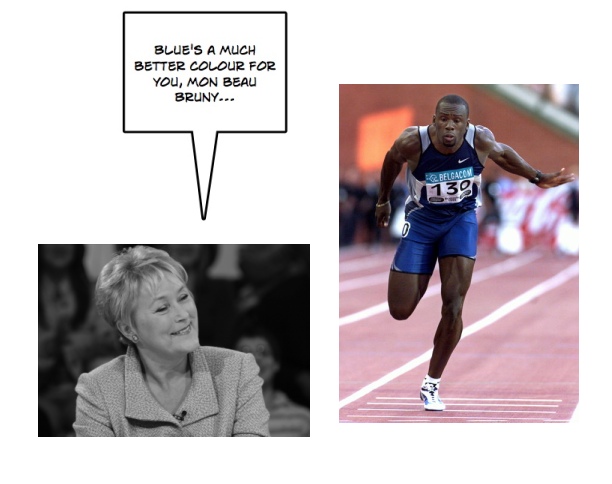The Québécois, Bruny Surin and Donovan Bailey
I’ve alway though the story of Bruny Surin and Donovan Bailey were the perfect metaphor to explain Québec identity to those who couldn’t understand it in other terms than ethnicity and race.
On the 27th of september 1996 at the Summer Olympic Games in Atlanta, Donovan Bailey ran the 100m dash in 9.84 seconds, broke the world record, clinched the title of fastest man in the world and vindicated Canada’s honour after the humiliation of the whole Ben Johnson episode. A Canadian hero had arrived.
Well… except in Québec. People in Québec appreciated what Bailey had done, but they didn’t quite identify with the Jamaica-born athlete in the same way other Canadians did. In 1996 another runner who hadn’t even qualified for the final became Québec’s hero. Bruny Surin.
Why did people in Québec identify with Bruny Surin and not with Donovan Bailey?
Bailey and Surin are both black. They were both born in the Caribbean in 1967 and emigrated to Canada in their teens. Bailey and Surin both loved playing basketball and it is while they were dribbling and shooting hoops that some Phys. ed. teacher noticed their potential and encouraged each of them to persue athleticism and running.
Both Surin and Bailey quickly achieved international success. They worked with the best european coaches and trained year round on the sunny campuses of american universities. They both became key members and medal hopefuls of Canada’s Olympic team in 1996 and it is wearing the same red and white maple-leafed uniform that they won the gold medal of the 4X100m relay. Today they share the Canadian record for the 100m sprint: 9.84 seconds.
Objectively, Bailey, not Surin, is the great Canadian hero. Bailey set the Canadian (and then world) 100 meter dash record while winning a gold medal in Atlanta. Surin failed to make the final as a solo runner in 1996 and only equaled Bailey’s performance years later in Seville when he finished second at the 1999 World Championships.
Yet, in 2009, Bruny Surin is still a star in Québec. He’s a successful businessman, big corporations pay him thousands of dollars to give pep talks to their employees and he is still a regular on the television and media circuit.
Meanwhile, if it wasn’t for racial profiling, thirteen years after his triumph in Atlanta, Donovan Bailey could probably cross the entire city of Laval could without a single person stopping him on the way.
The reason people identify with Surin and forgot Bailey has nothing to do with race, ethnicity or immigration. It’s very simple actually. Bruny Surin and his family live in Québec and speak French with an (haitian-flavoured) Québec accent. Bruny Surin lives in their world and Donovan Bailey, no matter how many maple leafs are on his jacket, does not.
That’s it. It’s not anymore complicated than that.
There is no great anti-Québec conspiracy theory here. Donovan Bailey won fair and square. Bruny Surin succeeded at all he did, yet always seemed to carry the stigma of the one who chokes at great historical junctures.
Hey, maybe that’s what the Québécois identify with.
This doesn’t mean there is no racism in Québec, or that young Haitians in Montreal do not face discrimination. But this is not different than the discrimination black and Jamaican kids face in Toronto, despite Donovan Bailey’s success.
Bruny Surin’s biography just came out (haven’t read it) and he is said to be shopping for a political party to persue a political career.
Surin isn’t associated with any political team yet, but he has publicly supported the Parti Québécois‘ Richard Legendre in the past.
Should that ever happen, I can’t wait to see Canada’s reaction when an Olympic medalist who carried the Maple Leaf flag up high countless times joins the Parti Québécois.
I know, I know, you won’t hate him because he’s an ungratful immigrant. Just because he’s a separatist.
